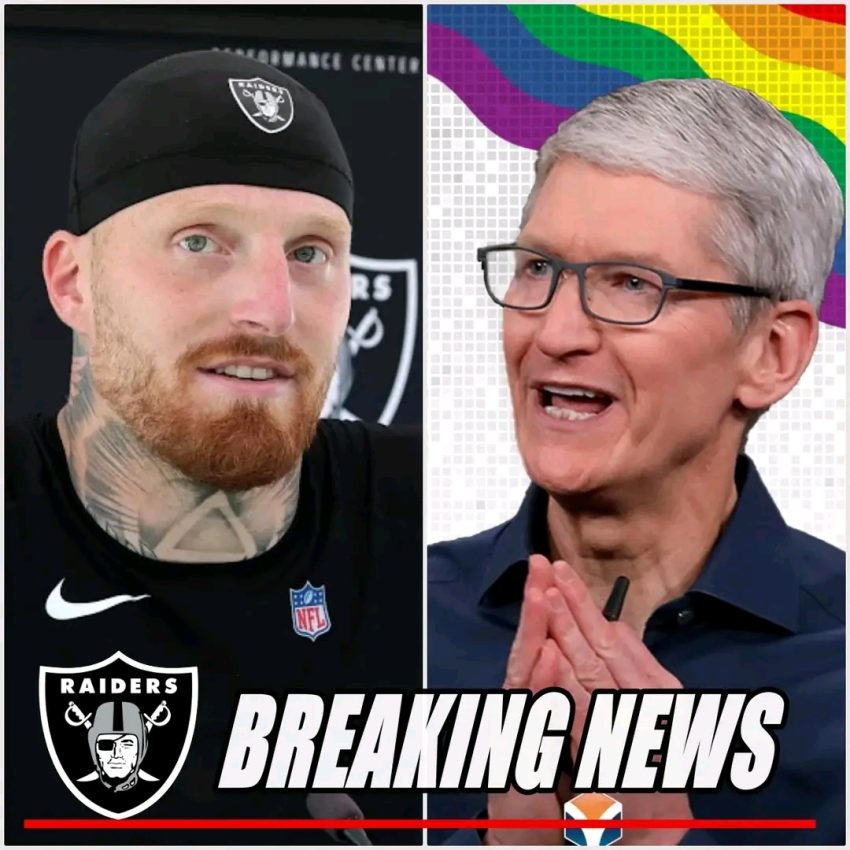In a hypothetical situation that has captured the imagination of fans across the country, a dramatic story unfolded involving Las Vegas Raiders defensive star Maxx Crosby and billionaire tech mogul Tim Cook, the openly gay CEO of Apple. According to fictional reports circulating online, Cook allegedly offered $250 million—along with a lucrative sponsorship for the Las Vegas Raiders—for the 2025 NFL season, under the condition that Crosby would star in an openly pro-LGBT ad campaign and pledge long-term support for the movement.
But what shocked everyone was not the size of the offer—it was Maxx Crosby’s response, which, according to the fictional tale, consisted of just one sentence that left the entire NFL and media landscape speechless:
> “I’ll stand for what’s right—but I won’t be bought.”
That single sentence, fictional though it may be, sparked a massive debate in sports circles, social media platforms, and fan forums. It raised questions about the nature of activism in sports, the role of financial influence, and how athletes navigate the complex intersection between personal beliefs, brand identity, and public expectations.
In this imagined scenario, Crosby’s one-liner was interpreted by some as a principled stand—refusing to tie his voice to any message unless it came from genuine conviction. Others criticized it as a missed opportunity to use his platform for visibility and inclusion. But regardless of interpretation, one thing was clear: the fictionalized Crosby stood firm in valuing authenticity over monetary gain.
In the real world, Maxx Crosby is known for his relentless work ethic, comeback story from addiction, and leadership in the Raiders locker room. He’s not just one of the best pass rushers in the NFL—he’s also admired for his mental toughness and outspoken honesty. While this fictional situation isn’t grounded in reality, it reflects the kind of strong personality and discipline Crosby is known for.
Tim Cook, on the other hand, has long been a symbol of quiet strength and leadership in the tech world. As the first openly gay Fortune 500 CEO, he has supported numerous initiatives for inclusion, equality, and diversity. While there is no record of him ever making such an offer to an NFL player, his presence in stories like this—real or imagined—signals the growing influence of tech in shaping cultural and political conversations within sports.
The fictional offer also raises broader themes: Should athletes promote social causes for compensation? Should movements rely on celebrity voices to push forward? And does money compromise the meaning of advocacy?
Though this story is not real, it mirrors real-world tensions that athletes face every day. In an age where sports, business, and social issues are more entangled than ever, the idea of saying “no” to even a nine-figure deal speaks volumes—even in fiction.
Whether fact or fantasy, the message resonates: some things, like personal values and integrity, can’t be bought. Not even for $250 million.
